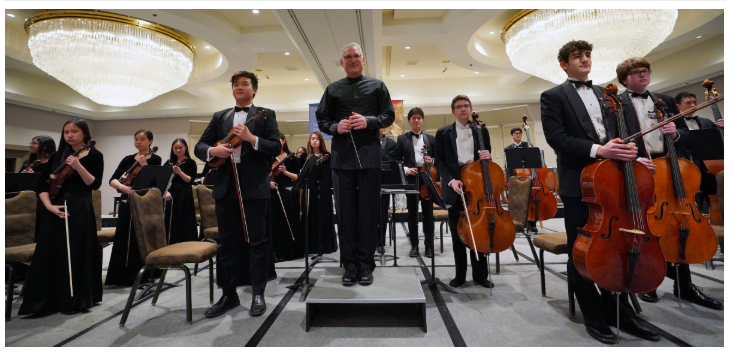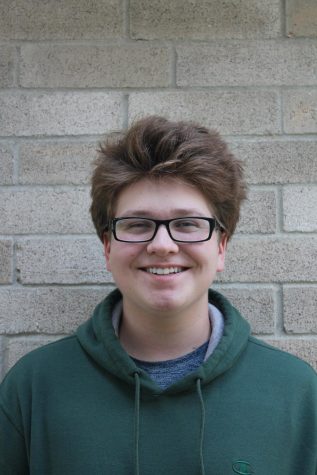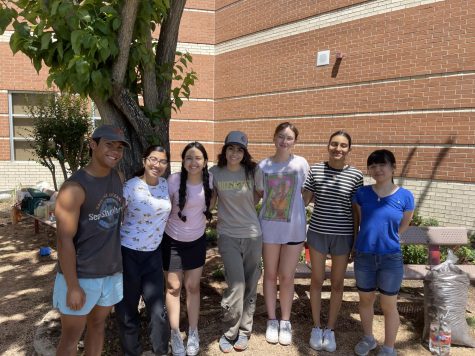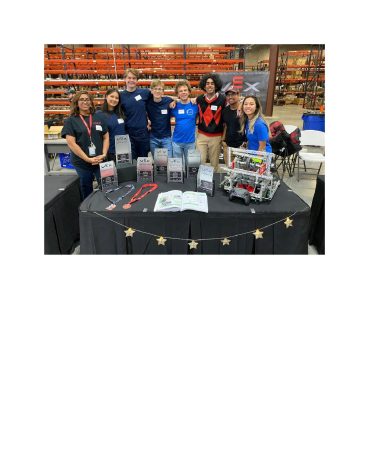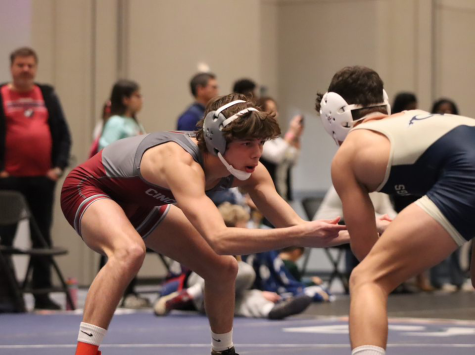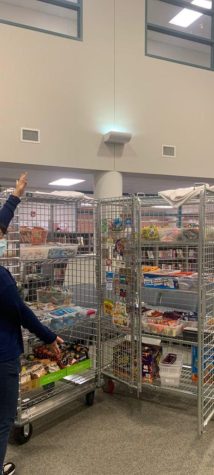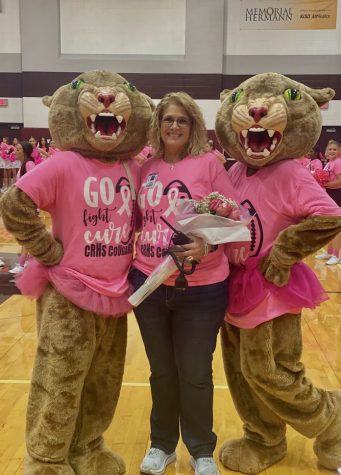Tchaikovsky to Technology
Varsity Orchestra Adjusts To Online Classes After Spring Trip Win
Sinfonia stands for applause after their Grand Champion Concert during the American String Teachers Association (ASTA) National Orchestra Festival.
September 24, 2020
“As I was saying bye to everyone on the bus, I kept saying ‘see you next week,’ but here we are six months later,” Orchestra Director Brett Nelsen said.
The Sinfonia varsity orchestra won big on their spring trip to Orlando, Florida, to participate in the 2020 American String Teachers Association (ASTA) National Orchestra Festival, being named the High School String Orchestra Division Champions and overall Grand Champions of the entire high school division. On their trip, they also spent two days at Universal Studios Florida, eventually returning home during spring break. Like clockwork, only days after they got home, restrictions quickly were imposed and schools were closed with the spread of COVID-19 increasing. Since then, they have had to adjust from being national grand champions to not being able to play together at all.
“Our single biggest challenge is realizing that the technology we have just does not allow for a live ensemble experience of us playing together in real time,” Nelsen said. “It’s just never going to happen. We’ve had to make that shift to developing the musician individually and independently, and encouraging them to use their skills of networking and working collaboratively online they’ve been building. This is an opportunity for us to really reach out and make connections.”
During the remainder of the spring semester, virtual orchestra meetings through Zoom were held once or twice a week to check in, and students focused on solos they could learn, or their Region music once it came out in May. The All-State process that encompasses Region auditions begins May 1, when two etudes (short pieces designed to develop a player’s technical skills) are released for each instrument. In July, the All-State excerpts are released, short cuts for each instrument that come from pieces that the All-State Orchestras will eventually perform. Auditions are held in October; this year, they are recorded submissions instead of a live audition.This fall, with class everyday, they have played more as a class, all working on quartet music together, as well as continuing to focus on Region music.
“For the most part they went with all the punches,” Nelsen said. “They’re all very mature student musicians and they took it for what it was and adapted with it. When the Region and All-State music came out in May, for auditions this fall, that was definitely a relief. It gave them something to really focus on. Now in the fall, they’ve found a few things that Zoom does very well for music, and they’ve maxed out everything it has to offer. It’s really a testament to the leadership in that class and their flexibility.”
In-person students have had different styles of classes depending on their level of orchestra and how many students there are. Some have been participating in class in tandem with the Katy Virtual Academy (KVA) students, through Zoom on the SMART Board; others have been working on duets or other small ensembles with each other, in addition to their music for class.
“It’s hard trying to get that engagement to keep the orchestra together, especially with freshmen,” Desheng Liu, senior and orchestra President, said. “When everything’s online, it’s so easy for them to just click that mute button or block you when you reach out to them. In person, people are more willing to wave back and say hi and move out of their comfort zone to talk to someone new. The best thing to do is just reaching out to each person individually and really making them feel like it’s personalized. Normally, we’d also have events over the summer like the freshmen breakfast and a big picnic, so it can be hard to reach out to people and draw them in after the whole summer without those happening. A phone call or some texts from an unknown number are a lot more awkward than a social.”
To work around not being able to play together live because of delay and other conditions, KVA students are often split into breakout groups of mixed instruments for orchestra class. There, one person can unmute themselves and play some segment of their music while everyone else stays muted and plays along with them.
“There are a few specific things Zoom does really well,” Nelsen said. “I don’t know if I’d call them ‘silver linings,’ that seems a bit optimistic, but it’s better than ‘it is what it is.’ For example, we can go across the world and get masterclasses arranged, since no travel is required to host a Zoom class. I also know some other schools in the Houston area might want to get in on our little collaborative thing and maybe hold some mock auditions for Region and All-State together. We’re just doing our best to get the most out of the tools that we have.”
KVA students have also been heavily focusing on region auditions, splitting into breakout rooms of their instrument on Fridays to work on tricky spots together or to hold mock auditions, where they play for each other to emulate the stress of a real audition, then give each other feedback on how they performed.
“I get a lot more individualized practice time for myself,” Liu said. “We’ve lost that ability to practice leading and playing together as an orchestra; now we just have to make it about ourselves and our individual instruments. Now I have a lot more time to work on my own stuff that I need to focus on. I do think that if we get to a point where we can go back, we’ll eventually be able to get back to our level from last year and even improve.”
Beyond Zoom’s technological limitations, the current pandemic further complicates issues such as possibly holding concerts or other events; Nelsen said they would need a venue the size of a ballroom rather than the traditional stage of the PAC to follow social distancing protocols, but hopes that smaller groups of students could go out into the neighborhood and play music for the public.
“I’m just hoping that the class of 2021 is not another lost class,” Nelsen said. “Their trip and that whole experience of traveling with everyone helped Sinfonia really bond together. It’s all very close and everyone trusts each other. There’s a foundation of love and support and trying to get better. I’m glad we have multiple platforms for them like Zoom, Discord, and Instagram so they can stay connected. We’re in isolation, but we shouldn’t feel isolated.”

